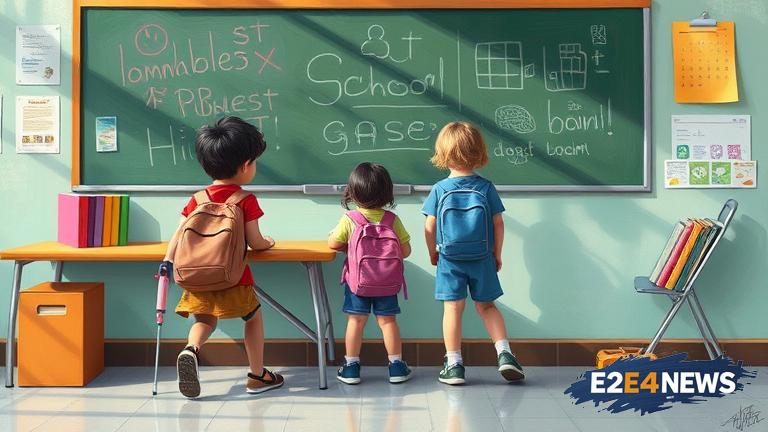As the summer break comes to an end, kids are gearing up to head back to school, but with the excitement of a new academic year comes the risk of getting sick. According to health experts, children are more likely to fall ill after the summer break due to a combination of factors. One of the main reasons is that their immune systems have weakened over the summer months, making them more susceptible to illnesses. Additionally, the sudden change in environment and exposure to new germs can also contribute to the increased risk of getting sick. When kids are at home during the summer, they’re often in a more controlled environment, with less exposure to germs and illnesses. However, when they return to school, they’re suddenly surrounded by hundreds of other children, each with their own set of germs and illnesses. This can be particularly challenging for younger children, who may not have developed the necessary immune system to fight off certain illnesses. Furthermore, the air quality in schools can also play a role in the spread of illnesses, with poor ventilation and high levels of dust and pollen contributing to the problem. To make matters worse, many schools often have outdated heating and cooling systems, which can circulate germs and illnesses throughout the building. Moreover, the stress of going back to school can also take a toll on kids’ immune systems, making them more prone to illnesses. Parents can take steps to help prevent their kids from getting sick, such as ensuring they get enough sleep, eat a healthy diet, and practice good hygiene. Encouraging kids to wash their hands regularly, especially after using the bathroom and before eating, can also help reduce the risk of getting sick. Additionally, parents can talk to their kids about the importance of covering their mouths when they cough or sneeze, and avoiding close contact with others when they’re feeling unwell. It’s also essential for parents to stay on top of their kids’ vaccination schedules, to ensure they’re protected against common illnesses. By taking these precautions, parents can help reduce the risk of their kids getting sick and ensure a healthy and successful academic year. However, despite these efforts, it’s still possible for kids to get sick, and parents should be prepared to take action if their child does fall ill. This can include keeping them home from school, providing plenty of rest and fluids, and seeking medical attention if necessary. In some cases, kids may need to take medication or receive treatment to help manage their symptoms and prevent the spread of illness. By being proactive and taking the necessary precautions, parents can help their kids stay healthy and thrive throughout the school year. It’s also important for schools to take steps to prevent the spread of illnesses, such as improving ventilation, increasing cleaning and disinfection, and promoting good hygiene practices among students and staff. By working together, parents, schools, and healthcare providers can help reduce the risk of kids getting sick and ensure a healthy and successful academic year. As the new school year begins, it’s essential for everyone to be aware of the risks and take the necessary precautions to prevent the spread of illnesses. By doing so, we can help keep kids healthy and ensure they have a successful and enjoyable academic year. In conclusion, the risk of kids getting sick after the summer break is a real concern, but by taking the necessary precautions and being proactive, parents and schools can help reduce this risk and ensure a healthy and successful academic year.
